Atypical Addison's Disease In Dogs Symptoms
Atypical addison's disease in dogs symptoms. Next your dog will lose its appetite and show signs of anorexia. Addisons Disease Hypoadrenocorticism. If Addisons disease is suspected the ACTH stimulation test is the gold standard for diagnosis.
The most common signs of Addisons disease in dogs include. In many cases the signs of Addisons disease can be nonspecific like lethargy vomiting diarrhea decreased appetite and weight loss. Clinical signs are typically vague and non-specific such as gastrointestinal disturbances vomiting diarrhoea and inappetence weight loss and lethargy.
Eventually the dogs blood chemistry changes and sugar levels drop causing the animal to collapse. Dilated Cardiomyopathy in Dogs and Cats. Increased thirst and urination Slow heart rate Weak pulse Diarrhea Vomiting Weakness Sleepiness or lethargy Loss of appetite Weight loss Abdominal pain Shivering or shaking Dehydration Shock low blood pressure cold extremities extreme.
Symptoms of Addisons disease. Once the medication starts working your dog will start to regain his or her. Original symptoms include lethargy vomiting and diarrhea.
Diets and Heart Disease in Dogs and Cats. Atypical Addison disease has been reported in dogs and is associated with hypocortisolemia with normal electrolytes. One of the symptoms seen in dogs with Addisons disease is an increase in the blood concentration of potassium and a decrease in the blood concentration of sodium.
The severe electrolyte disturbances characteristic of mineralocorticoid deficiency such as hyperkalaemia are not seen. According to the AKC the most common Addisons disease in dogs symptoms include. Sleeping and Resting Respiratory Rates in Managing Heart Failure in Dogs.
Treatment consists of supplementation of glucocorticoid hormones such as prednisone. Untreated dogs may develop heart arrhythmias.
Once the medication starts working your dog will start to regain his or her.
Depression Lethargy Anorexia lack of appetite Weight loss Vomiting Diarrhea Bloody stools Alopecia hair loss Increased urination Increased thirst Dehydration Shaking Weak pulse Irregular heart rate Low temperature Painful abdomen Hypoglycemia Hyperpigmentation of. Untreated dogs may develop heart arrhythmias. Recovering from an Addisonian crisis is like a human recovering from surgery. Usually these dogs do not present in a crisis nor are they severely dehydrated bradycardic or in hypovolemic shock as they still have mineralocorticoid function. In some dogs hyperpigmentation of the skin is seen because of the lack of negative feedback on the pituitary gland and increased ACTH release. Original symptoms include lethargy vomiting and diarrhea. The atypical addisonian shows signs that usually resemble the chronic form as illustrated with lethargy decreased appetite and poor weight gain. Increased thirst and urination Slow heart rate Weak pulse Diarrhea Vomiting Weakness Sleepiness or lethargy Loss of appetite Weight loss Abdominal pain Shivering or shaking Dehydration Shock low blood pressure cold extremities extreme. Dogs with Addisons disease can also experience decreased heart rates with possible heart arrhythmias which results in poor circulation and kidney damage secondary to high potassium levels.
Thus in dogs with Addisons disease where these hormones are deficient they have an abnormal stress response. Dilated Cardiomyopathy in Dogs and Cats. Atypical refers to clinical pathological findings that differ from the more familiar features. Diets and Heart Disease in Dogs and Cats. Sleeping and Resting Respiratory Rates in Managing Heart Failure in Dogs. Diarrhea is also a problem. Here are some of the clinical signs that your dog may have hypoadrenocorticism.


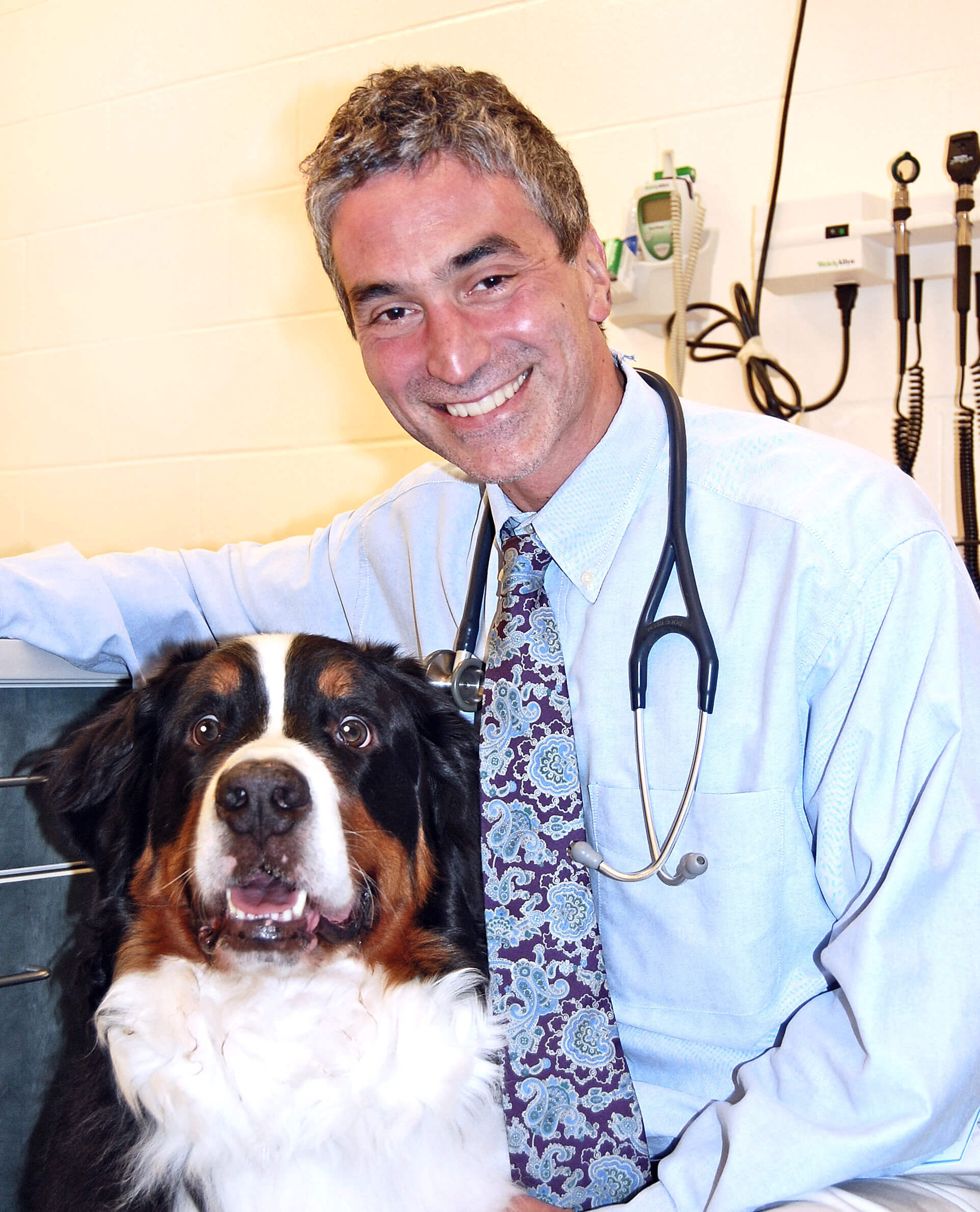
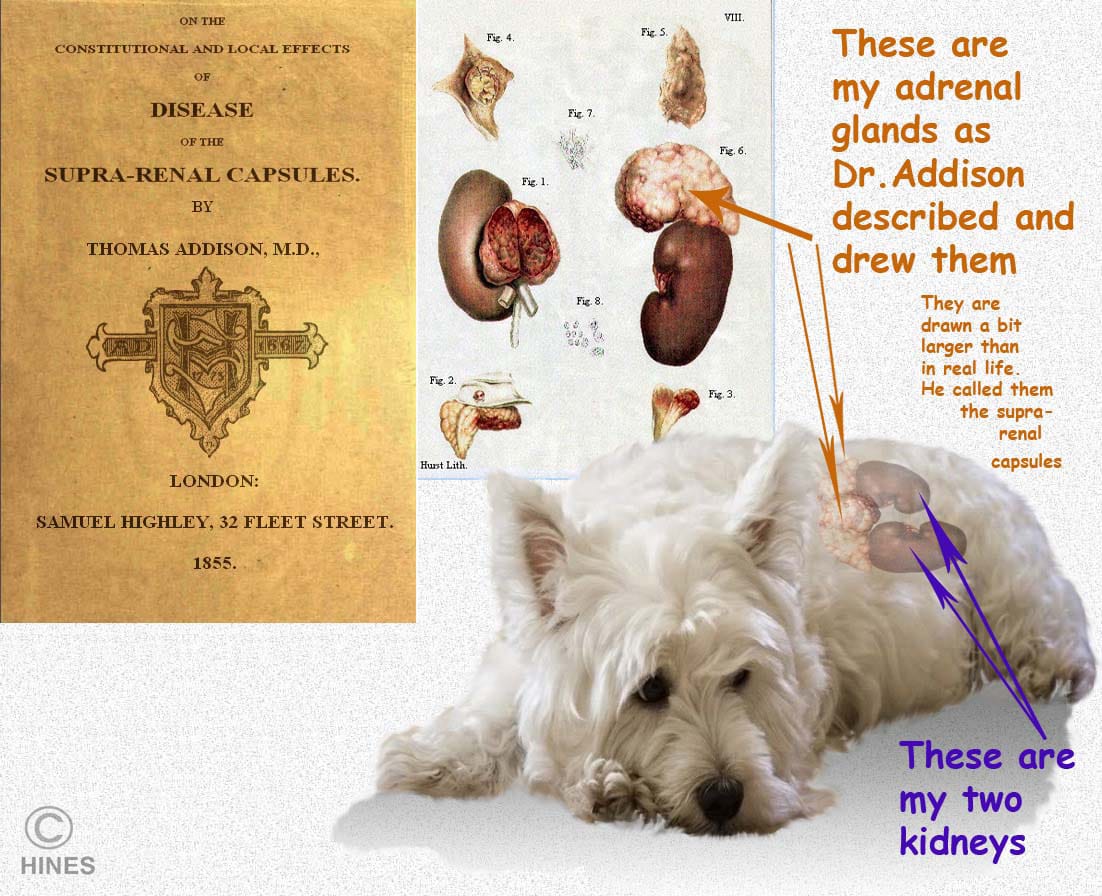

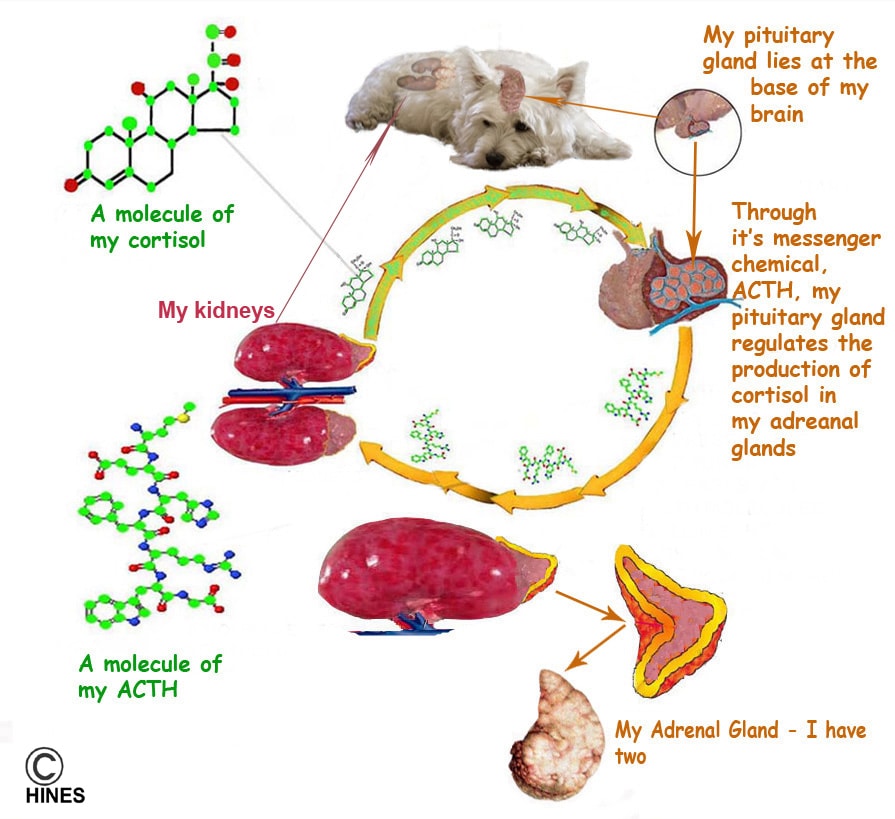
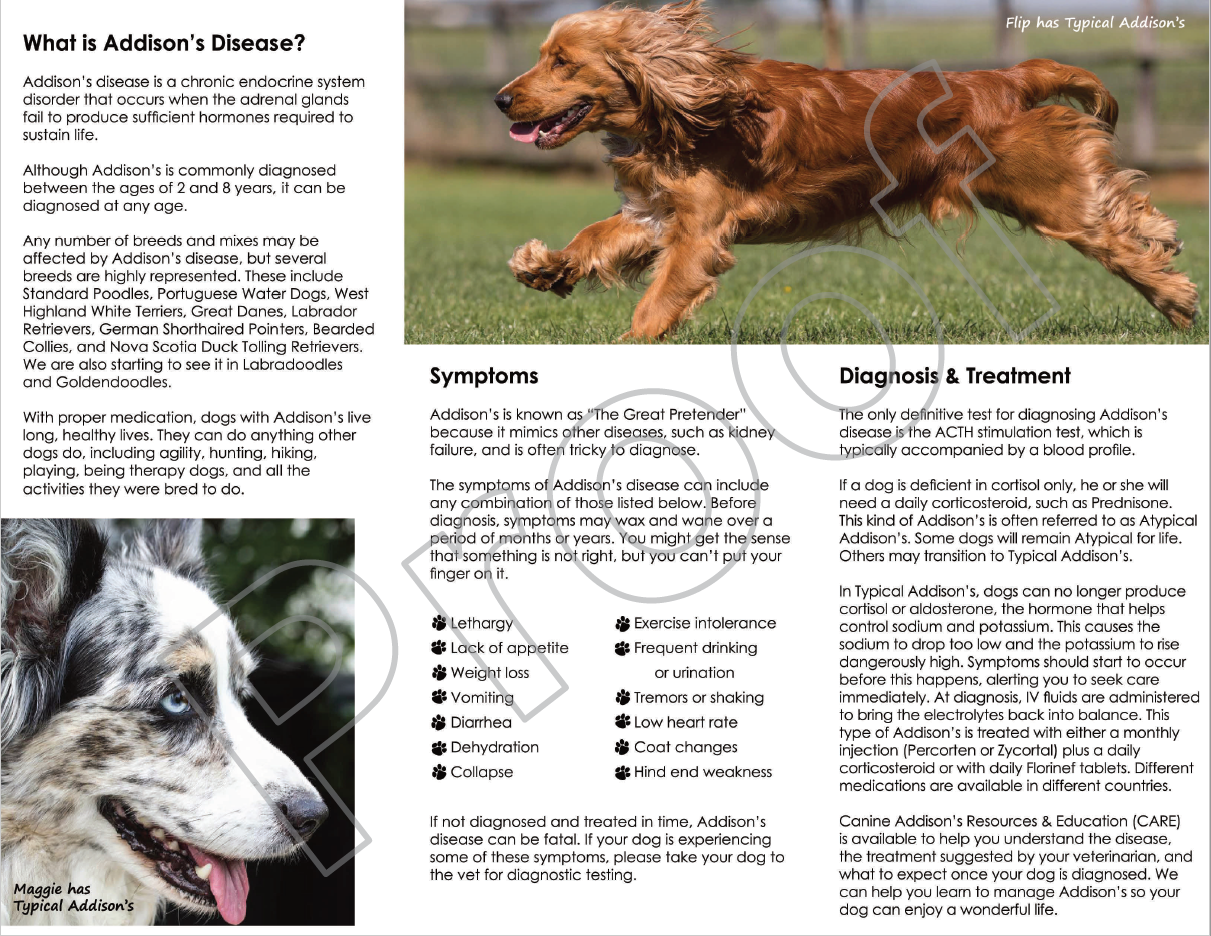













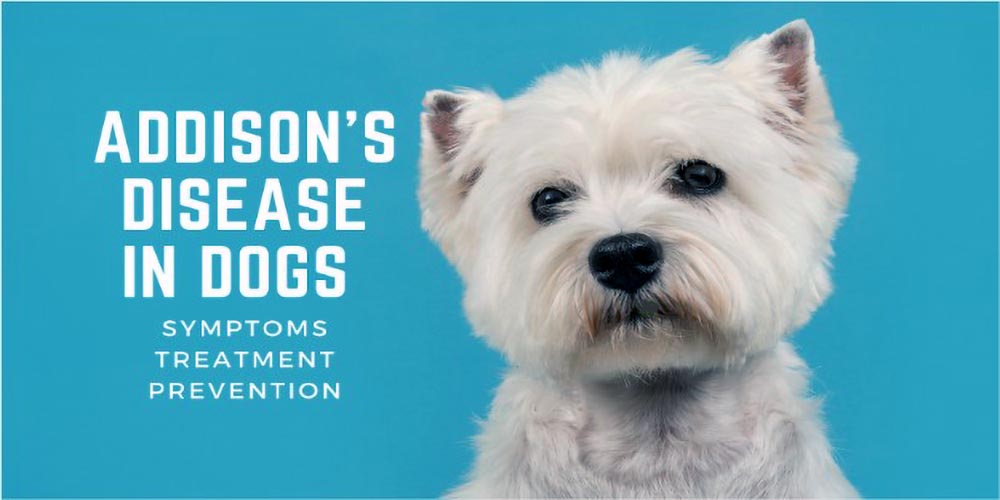




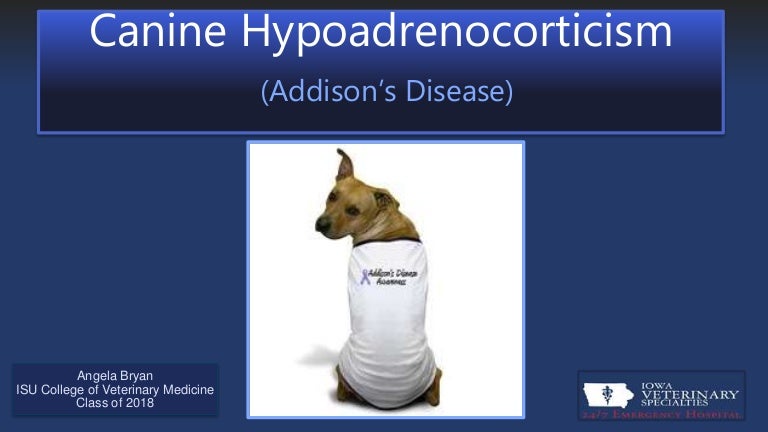













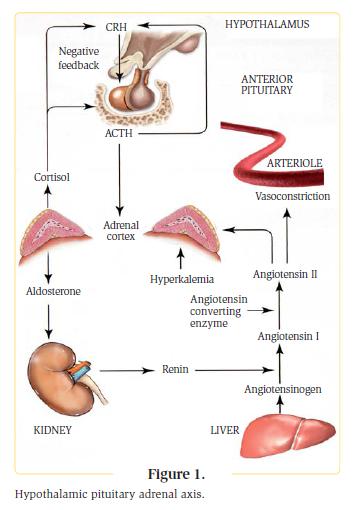








Post a Comment for "Atypical Addison's Disease In Dogs Symptoms"